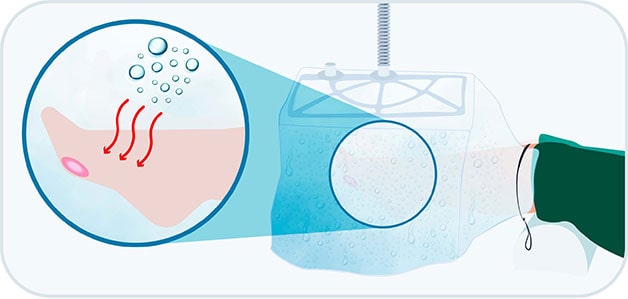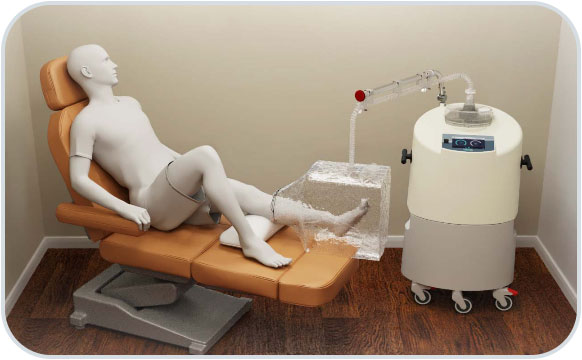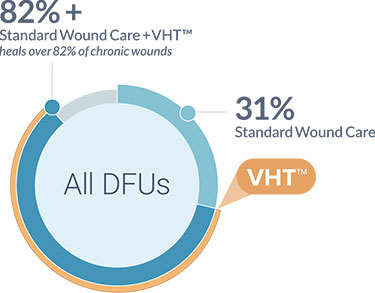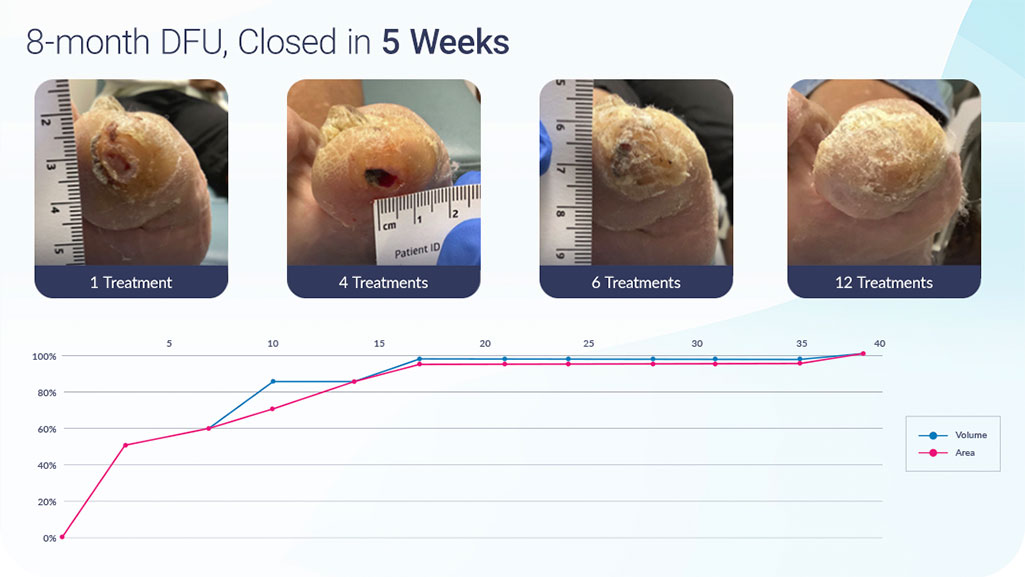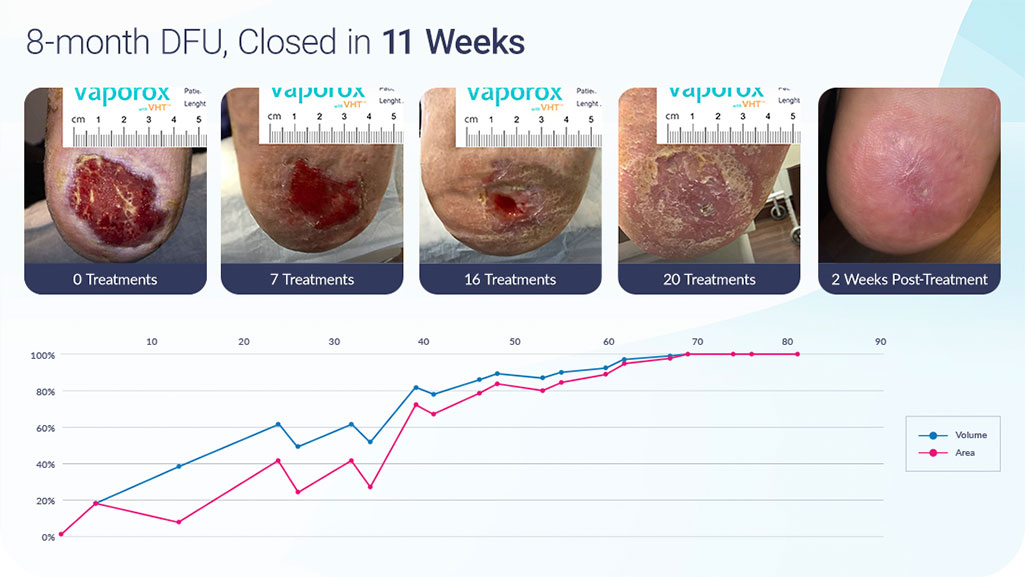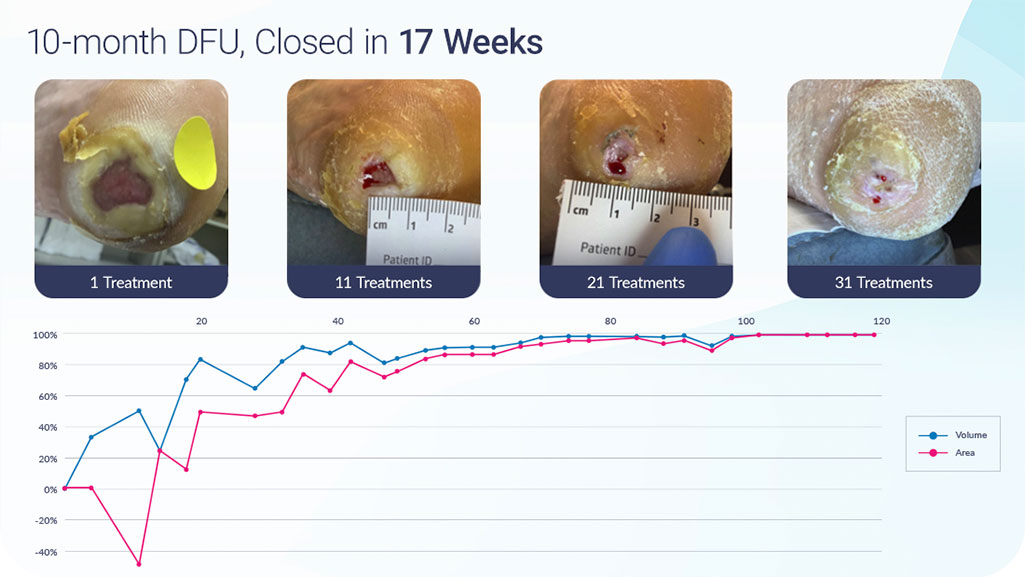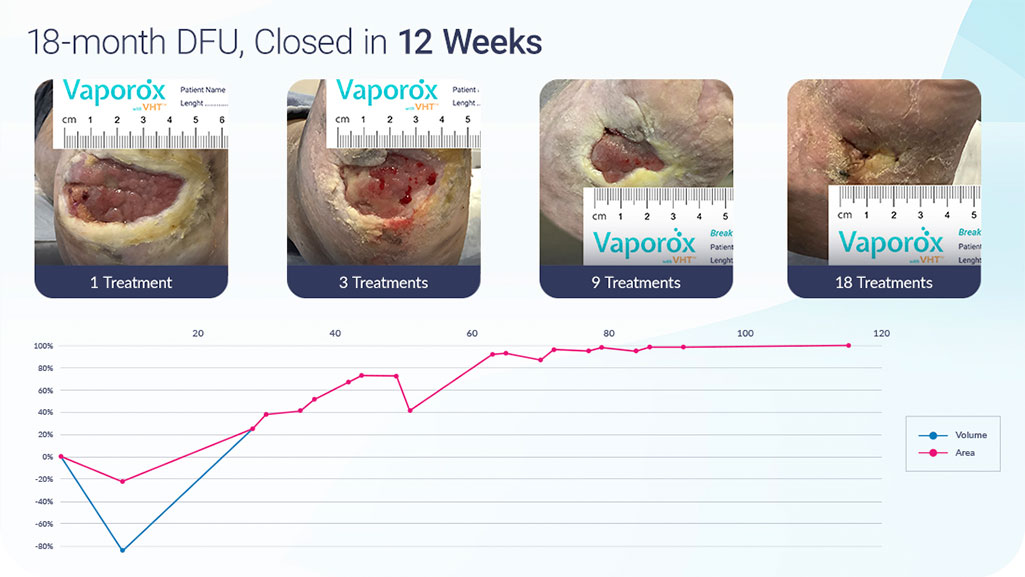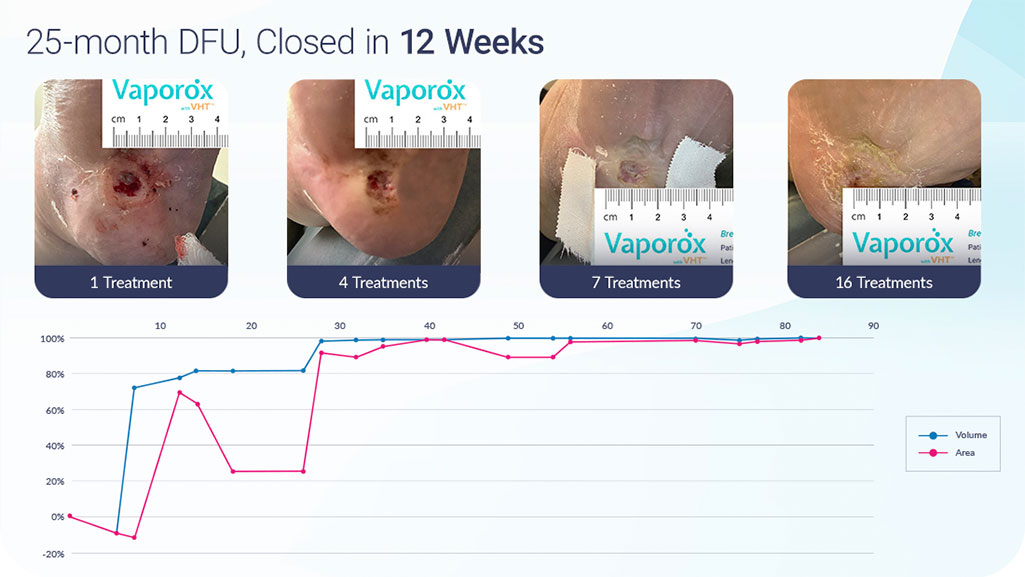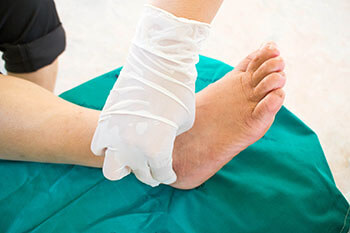
Wound care is particularly important for those with diabetes. It’s possible that what appears to be a small wound could turn into more severe foot complications down the road if left untreated. It’s common for those with diabetes to experience neuropathy. Neuropathy is a type of nerve damage that affects the body and can cause you to lose feeling in the feet. If you’re no longer experiencing feeling in your feet and a wound develops, it’s very possible it may go unnoticed if you don’t check your feet daily.
Some factors that contribute to the formation of wounds on the feet include wearing tightly fitted shoes, getting a pebble stuck in your shoe, or simply walking. What may appear to be just a small inconvenience such as a blister or callus can worsen over time, so it’s important to be safe and seek the attention of a professional. If you’ve developed a wound, it’s recommended that you try your best to keep the weight off of the area until you’re able to meet with a podiatrist.
Some ways to prevent wounds from developing include checking your feet daily for any injuries, washing and drying your feet daily, dressing for comfort and making sure your toes have enough space, and properly trimming your toenails straight across. Because wounds can lead to more severe complications, especially for those with diabetes, we recommend you speak with a podiatrist for professional guidance and a suggested plan for treatment.
Diabetic Wound Care in Clovis, CA
People with diabetes are more vulnerable to foot ulcers and sores that can be slow to heal. The right care for diabetic wounds can help injuries heal faster and reduce the risk of infection or chronic pain. Schedule an appointment with Advanced Foot and Ankle Centers, Inc. to meet with a diabetic wound care specialist in Clovis or to learn more about safe diabetic wound treatment.
Signs You Need Wound Care
Diabetic wound care starts with proactively monitoring wounds, ulcers, and injuries. Look for these signs that you need support from a diabetic wound care specialist:
- Skin discoloration
- Blisters or calluses
- Fluid buildup
- Ulcers, wounds, or sores that you don't remember
- Feeling pain or tenderness in your foot
Diabetic ulcers are open wounds that can get worse because of the nerve damage and poor blood circulation that diabetes can cause. Any of the above signs can indicate it's time to speak to a specialist. It's also important to seek medical treatment if a wound persists without healing.
Infection Prevention
Diabetic wounds on your feet and ankles can be uniquely vulnerable to infection, especially if you walk in sandals that expose the wound to the environment. The wounds can also worsen if you have shoes or socks that rub against the wound. Some tips for preventing infection include:
- Gently cleaning the wound frequently
- Keeping it covered with an appropriate bandage
- Keeping pressure off the wound
- Not walking around barefoot
Long-term health habits that can also reduce the risks of infection include quitting smoking, managing your blood sugar, and proactively seeking diabetic wound care and treatment. At Advanced Foot and Ankle Centers, we provide diabetic wound care near you so you can quickly speak to a diabetic wound care specialist.
Diabetic Wound Care FAQs
How long will it take to recover?
Every diabetic wound heals differently. Minor injuries that are well cared for can heal within a couple of weeks, while chronic wounds can take over a year for healing to be complete. The healing process depends on the wound severity, circulation, treatment, and overall health.
Can all wounds be treated?
Not all diabetic wounds can be treated. Some chronic or severe wounds can lead to medical complications and even amputation. But most wounds can be treated with early detection, blood sugar management, and prompt access to diabetic wound treatment.
How can I care for wounds at home?
Keep wounds clean and protected with a regularly changed bandage. It's also important to keep your feet clean and dry to prevent infection or contamination.
Will insurance cover my treatment?
Most health insurance policies will cover diabetic wound treatment, but every plan is different. Contact your insurance provider to determine payment information, covered processes, and network providers.
What do I need to schedule an appointment?
To schedule an appointment for diabetic wound treatment, have your insurance information and a physician's referral (if needed) ready. It's also important to have information regarding your medical history, current prescriptions, and other medical details.
Do I need a referral for diabetic wound care treatment?
Different wound care centers have different policies regarding whether they require a physician's referral before they can treat you. Your health insurance provider may also require a referral as evidence of medical necessity.
What slows down diabetic wound healing?
Many factors can cause diabetic wounds to heal slowly. Common reasons for slow healing are nerve damage, poor blood circulation, and chronic inflammation. Poor nutrition or inconsistent blood sugar management can also negatively affect healing.
When is it safe to leave a wound open to the air?
As a general rule, diabetic wounds should not be left open to air because it increases the risk of infection and can dry out the wound.


